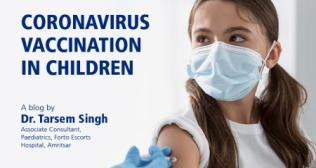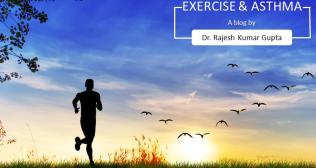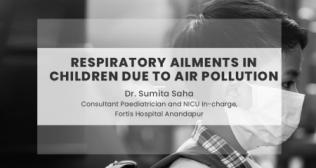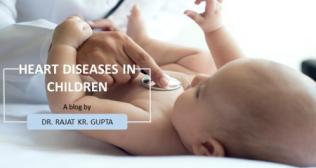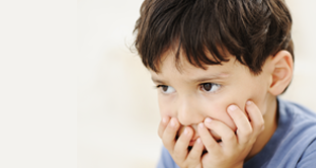
Kawasaki Disease: Understanding Symptoms and Causes
Introduction
Kawasaki disease is a rare, mysterious illness that mainly impacts kids below the age of 5, including in India, where multiple kids were diagnosed with symptoms between 2020 and 2021.
The illness is the most predominant cause of acquired heart disease in kids across the globe, but it is typically unrecognized/misdiagnosed.
To combat this condition, let's try to get more insights into what exactly Kawasaki disease is, its symptoms, and its causes:
Overview of Kawasaki Disease
Kawasaki disease is a sudden heart condition that causes the immune system to strike on the blood vessels, which become inflamed as well as swollen. Kawasaki disease affects the coronary arteries, which transport blood to the cardiac muscle.
Alternative names for Kawasaki disease are Kawasaki syndrome and mucocutaneous lymph node syndrome.
What are the Symptoms of Kawasaki Disease?
- The first indicator of Kawasaki Disease is a high fever (over 101°F, and typically as high as 104°F) that lasts more than four days. Over the next several days (not all at once), these other vital signs may occur:
- The hands and feet, especially the palms and soles, become very red and swollen. Two to three weeks after the fever starts, the skin on the hands, fingertips, and feet usually peels.
- The interior of the mouth and the lips become red, dry, and cracked. The tongue may have rough, red spots. This is also known as - a "strawberry tongue."
- Red, splotchy skin eruptions appear all over the body, especially in the groin portion (it fades in about in 7 days).
- Bulge develops in a lymph node on one side of the neck region.
- The eyes turn red and look "bloodshot" (without drainage or crusting).
Most children suffering from Kawasaki Disease are also very irritable and fussy. However, not all kids have all these signs. Kids may have a milder form, called "incomplete" (atypical) Kawasaki Disease. Both forms can cause harm to blood vessels if not treated immediately.
Other less common symptoms comprise:
- Pain or swelling in the joints
- Diarrhea
- Pain in the Stomach
- Cough or runny nose
- Puking
- Pain in the head
What Are The Causes Of Kawasaki Disease?
No one knows the cause of Kawasaki disease, although many cases happen in late winter and early spring. Researchers are looking into possible causes of Kawasaki disease, such as infections, environmental factors, or genetics.
Infection
The symptoms of Kawasaki disease are like those of an infection, so bacteria/a virus may be responsible. However, a bacterial or viral cause hasn't been recognized so far.
As Kawasaki disease isn't contagious, it can't be transmitted from one individual to another. This makes it unlikely that it's caused by a virus only.
Kawasaki disease can impact children of any age. It can be more severe in children under the age of 1.
Genetics
The kids who develop Kawasaki disease may be genetically predisposed - means the genes they inherit from their parents may make them more prone to get the condition.
A variation in the ITPKC gene has been linked with an increased risk of Kawasaki disease. The ITPKC gene gives instructions for making an enzyme called inositol 1,4,5-trisphosphate 3-kinase C. This enzyme aids in limiting the activity of immune system cells called T cells. T cells recognize foreign substances and safeguard the body against infection. Decreasing the activity of T cells when appropriate prevents the overproduction of immune proteins known as cytokines that lead to inflammation and which, in abundance, cause harm to the tissues. Researchers depict that the ITPKC gene variation may interfere with the body's ability to lessen T cell activity, leading to inflammation that harms blood vessels and results in the signs as well as symptoms of Kawasaki disease.
Kawasaki disease is more predominant in children from northeast Asia, especially Japan and Korea.
Immune System
The disorder is generally regarded as the result of an unusual immune system activation, but the triggers of this abnormal response are not known.
Environmental factors may also contribute to the development of Kawasaki disease, although specific triggers have not been definitively identified. Factors such as seasonal variations in disease incidence and potential exposure to allergens or toxins have been explored as potential environmental influences.
How Is Kawasaki Disease Treated?
Treatment for Kawasaki disease includes:
Patients will receive immune globulin (IVIG) or human blood proteins by IV. Approximately 10% of kids may not respond to the first dose of IVIG and will require a second dose or other medicines.
- Aspirin.
- Fluids by IV for hydration.
- Medicines for pain and swelling.
- Anticoagulants (blood thinners) for individuals at risk of blood clots.
- Steroids or other anti-inflammatory medications to decrease inflammation in severe cases.
- Cold compresses.
In a nutshell, Kawasaki disease is a rare condition that causes a fever and inflamed blood vessels in children under age 5. Experts need to find out exactly what causes it. It is not contagious, so it cannot spread from individual to individual. It might be the result of changes to specific genes or related to viral or bacterial infections.
Popular Searches :
Hospitals: Cancer Hospital in Delhi | Best Heart Hospital in Delhi | Hospital in Amritsar | Hospital in Ludhiana | Hospitals in Mohali | Hospital in Faridabad | Hospitals in Gurgaon | Best Hospital in Jaipur | Hospitals in Greater Noida | Hospitals in Noida | Best Kidney Hospital in Kolkata | Best Hospital in Kolkata | Hospitals in Rajajinagar Bangalore | Hospitals in Richmond Road Bangalore | Hospitals in Nagarbhavi Bangalore | Hospital in Kalyan West | Hospitals in Mulund | Best Hospital in India | Gastroenterologist in Jaipur | Cardiology Hospital in India
Doctors: Dr. Rana Patir | Dr. Rajesh Benny | Dr. Rahul Bhargava | Dr. Jayant Arora | Dr. Anoop Misra | Dr. Manu Tiwari | Dr. Praveer Agarwal | Dr. Arup Ratan Dutta | Dr. Meenakshi Ahuja | Dr. Anoop Jhurani | Dr. Shivaji Basu | Dr. Subhash Jangid | Dr. Atul Mathur | Dr. Gurinder Bedi | Dr. Monika Wadhawan | Dr. Debasis Datta | Dr. Shrinivas Narayan | Dr. Praveen Gupta | Dr. Nitin Jha | Dr. Raghu Nagaraj | Dr. Ashok Seth | Dr. Sandeep Vaishya | Dr. Atul Mishra | Dr. Z S Meharwal | Dr. Ajay Bhalla | Dr. Atul Kumar Mittal | Dr. Arvind Kumar Khurana | Dr. Narayan Hulse | Dr. Samir Parikh | Dr. Amit Javed | Dr. Narayan Banerjee | Dr. Bimlesh Dhar Pandey | Dr. Arghya Chattopadhyay | Dr. G.R. Vijay Kumar | Dr Ashok Gupta | Dr. Gourdas Choudhuri | Dr. Sushrut Singh | Dr. N.C. Krishnamani | Dr. Atampreet Singh | Dr. Vivek Jawali | Dr. Sanjeev Gulati | Dr. Amite Pankaj Aggarwal | Dr. Ajay Kaul | Dr. Sunita Varma | Dr. Manoj Kumar Goel | Dr. R Muralidharan | Dr. Sushmita Roychowdhury | Dr. T.S. MAHANT | Dr. UDIPTA RAY | Dr. Aparna Jaswal | Dr. Ravul Jindal | Dr. Savyasachi Saxena | Dr. Ajay Kumar Kriplani | Dr. Nitesh Rohatgi | Dr. Anupam Jindal |
Specialities: Heart Lung Transplant | Orthopedic | Cardiology Interventional | Obstetrics & Gynaecology | Onco Radiation | Neurosurgery |








